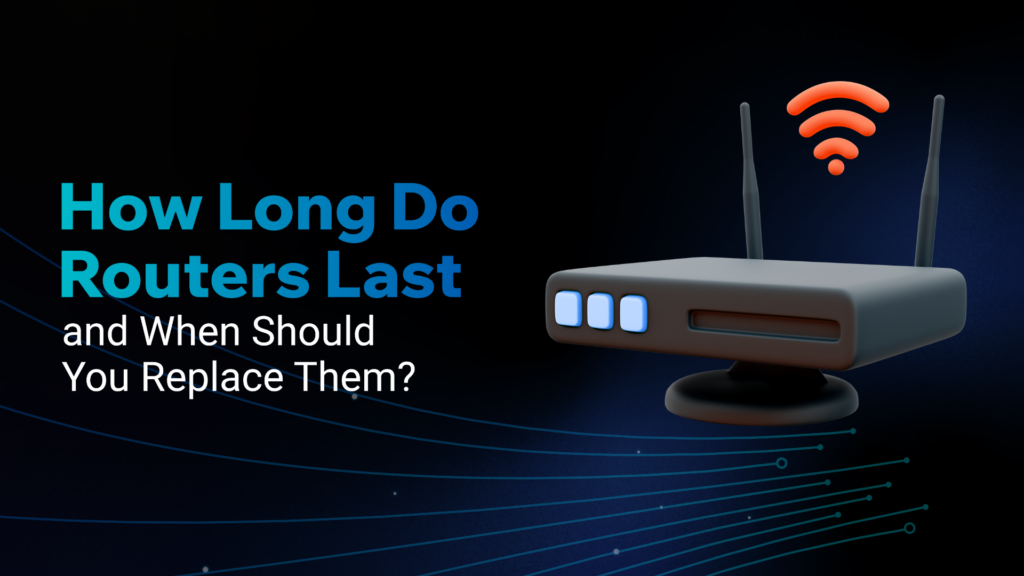
A fast and reliable internet connection is essential for both work and leisure. At the heart of that connection is your router—the gateway that connects all your devices to the web. But like any piece of technology, routers don’t last forever. So, how long do routers typically last, and when should you consider replacing yours?
How Long Do Routers Typically Last?
On average, routers last about 3 to 5 years. However, this lifespan can vary based on several factors:
- Usage Patterns
If you’re streaming high-definition video, gaming online, or connecting multiple devices simultaneously, your router is under more strain compared to light users. Heavy usage can lead to quicker wear and tear. - Technological Advancements
Wi-Fi technology continues to evolve rapidly. If your router is more than a few years old, it may not support the latest Wi-Fi standards (like Wi-Fi 6 or Wi-Fi 6E). These newer standards offer faster speeds, improved range, and better support for multiple devices, making them essential for modern households. - Environmental Factors
Routers that operate in hot or dusty environments are more likely to experience overheating, which can reduce their lifespan. Keep your router in a cool, well-ventilated area to help it last longer. - Manufacturer Support and Security Updates
Manufacturers provide firmware updates to fix bugs, enhance performance, and patch security vulnerabilities. If your router stops receiving updates, it may be time to replace it to ensure your network stays secure.
Signs It’s Time to Replace Your Router
Even if your router is still working, there are a few key signs that indicate it might be time for an upgrade:
- Slower Speeds
If you’re not getting the internet speeds you’re paying for, your router could be the bottleneck. Newer routers can handle faster speeds and more devices simultaneously. - Frequent Reboots
Does your router frequently need to be restarted to restore your connection? This is often a sign that it’s struggling to keep up with your internet usage. - Connectivity Drops
If you find that your devices are regularly losing their connection, especially when you’re farther away from the router, it could indicate that the hardware is starting to fail. - Old Technology
If your router doesn’t support the latest Wi-Fi standards (like Wi-Fi 5 or Wi-Fi 6), or if it’s been more than 5 years since you purchased it, you’re missing out on faster speeds and better performance.
How to Extend the Life of Your Router
Here are some tips to get the most out of your router before it’s time to replace it:
- Regular Firmware Updates
Check for and install firmware updates to ensure your router runs smoothly and securely. - Proper Placement
Place your router in a central, open location to ensure good coverage throughout your home and prevent overheating. - Reboot Periodically
Restarting your router occasionally can help clear up memory and improve performance. - Consider a Mesh System
If you’re experiencing coverage issues, instead of replacing your router, consider adding a mesh Wi-Fi system, which can extend your network’s range.
Conclusion
While routers typically last between 3 and 5 years, their lifespan depends on how you use them and how well you maintain them. Keeping an eye on your router’s performance and staying informed about the latest technology will ensure you enjoy fast, reliable internet for years to come.
If you’re noticing any of the signs mentioned above, it might be time to shop for a new router. With the rapid advancements in Wi-Fi technology, an upgrade could significantly improve your internet experience.



